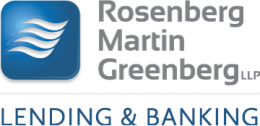Purchasers of Distressed Consumer Debt Must Obtain Collection Agency Licenses to Foreclose In Maryland
The Maryland Collection Agency Licensing Act, codified in the Business Regulations Article of the Annotated Code of Maryland, requires any person who “does business as a collection agency in the State” to obtain a license from the Maryland Collection Agency Licensing Board. Maryland’s second highest court, the Court of Special Appeals, held in 2013 that an unlicensed collection agency could not sue to in Maryland courts to collect a consumer debt and that any judgment obtained by an unlicensed collection agent was void.
As originally enacted, the MCALA defined a collection agency as a “person who engages directly or indirectly in the business of… collecting for, or soliciting from another, a consumer claim.” Consequently, creditors collecting debts for their own account were not collection agencies and were not required to be licensed. However, in 2007, noting the increasing prevalence of purchases of distressed consumer debt by those who had previously functioned as traditional collection agents for others, to close what it termed a “loophole” in the Act, the Maryland General Assembly amended the definition of collection agency. The definition now includes a person in the business of “collecting a consumer claim the person owns, if the claim was in default when the person acquired it.” As a result of this amendment, persons who sought to collect consumer claims that they had purchased after default became collection agencies required to obtain a license before they could enforce the claims in Maryland.
On June 6, 2017, the Court of Special Appeals issued an opinion addressing the interplay of its prior holdings that unlicensed collection agencies cannot sue and the 2007 amendment expanding the definition of collection agency in the residential foreclosure context. In the consolidated cases of Blackstone v. Sharma and Terrance Shanahan, Substitute Trustee v. Marvastian, Ventures Trust 2013-I-H-R (“Ventures Trust”), a statutory trust formed under the laws of the State of Delaware, had purchased residential mortgage loans after they were in default and had docketed cases to foreclose on the residential properties that secured the loans in the Circuit Court for Montgomery County. The borrowers moved to dismiss the foreclosure cases on the grounds that Ventures Trust could not take any action to collect what it was owed because it was an unlicensed collection agency. The Circuit Court dismissed the foreclosure cases without prejudice to refiling if Ventures Trust obtained a license and Ventures Trust appealed.
In the Court of Special Appeals, Ventures Trust made two arguments as to why it was not a collection agency as defined in the MCALA. First, it argued that foreclosing was not “doing business” in Maryland. In support of this argument, Ventures Trust cited § 12-902(a) of the Corporations and Associations Article of the Maryland Code which governs when foreign business trusts are “doing business” in Maryland and thus obligated to register with the Maryland State Department of Assessments and Taxation. Since that section provides that “[f]oreclosing mortgages and deeds of trust on property in this State” is not considered “doing business” for purposes of registering with SDAT, Ventures Trust argued that it was not “engaged in business” for purposes of the MCALA by foreclosing. Second, Ventures Trust argued that even if foreclosing was “engaging in business,” it still was not required to obtain a collection agency license because the MCALA itself provides that “This title does not apply to . . . a trust company” and Ventures Trust was a Delaware statutory trust. The Court of Special Appeals rejected both arguments.
As to the argument that foreclosing was not engaging in business, the Court of Special Appeals noted that the Corporations and Associations Article provision that foreclosing mortgages and deeds of trust is not deemed doing business for purposes of being required to register with SDAT was applicable only “for the purposes of this subtitle[.]” As the MCALA is in an entirely separate article of the Maryland Code, the Court of Special Appeals said that the fact that Ventures Trust may not have been “doing business” for purposes of being required to register with SDAT had no bearing at all on whether Ventures Trust was “engaged in business” for purposes of the MCALA.
As to the argument that Ventures Trust was a “trust company” exempt from the MCALA, the Court noted that the MCALA contains no definition of a “trust company.” Looking to the generic definition of “trust company” in Black’s Law Dictionary as “[a] company that acts as a trustee for people and entities and that sometimes also operates as a commercial bank,” the Court of Special Appeals said that, “There is nothing in the record that shows that Ventures Trust acts as a trustee for anyone” and that Ventures Trust was not a commercial bank. The Court then looked to definitions of “trust company” in articles of the Maryland Code other than the article in which the MCALA is housed and concluded that Ventures Trust not only did not fit into any of them, but that those definitions were only applicable to situations governed by those articles. The Court said that “there is no indication that the legislature, in 1977, when it exempted “trust companies” from the MCALA, intended those definitions to be used.” Accordingly, the Court affirmed the dismissal of Ventures Trust’s foreclosure cases.
The decision of the Court of Special Appeals that purchasers of distressed consumer debts must obtain collection agency licenses before they can foreclose will take on added significance when amendments to the MCALA take effect on July 1, 2017. Under those amendments, not only must an applicant for a collection agency license who operates from more than one “branch” in Maryland apply for a separate license for each branch, pay an application fee for each branch, and post a $5,000 bond for each branch, but it must also provide the name and residence address of each “control person.” A “control person” is defined as “including” a person who:
(i) is a general partner, an officer, a director, or a member of a collection agency, or occupies a similar position or performs a similar function;
(ii) directly or indirectly has the right to vote 10% or more of a class of voting securities, or has the power to sell or direct the sale of 10% or more of a class of voting securities of a collection agency; or
(iii) in the case of a partnership, a limited partnership, a limited liability partnership, a limited liability company, or any other business entity:
- has the right to receive on liquidation or dissolution of a collection agency 10% or more of the capital of the collection agency; or
- has contributed 10% or more of the capital of a collection agency.
These amendments will not only make it more expensive for purchasers of distressed consumer debt to operate in Maryland, but will also require them to disclose the identities of those who manage their affairs and have a 10% or more ownership stake in them.

